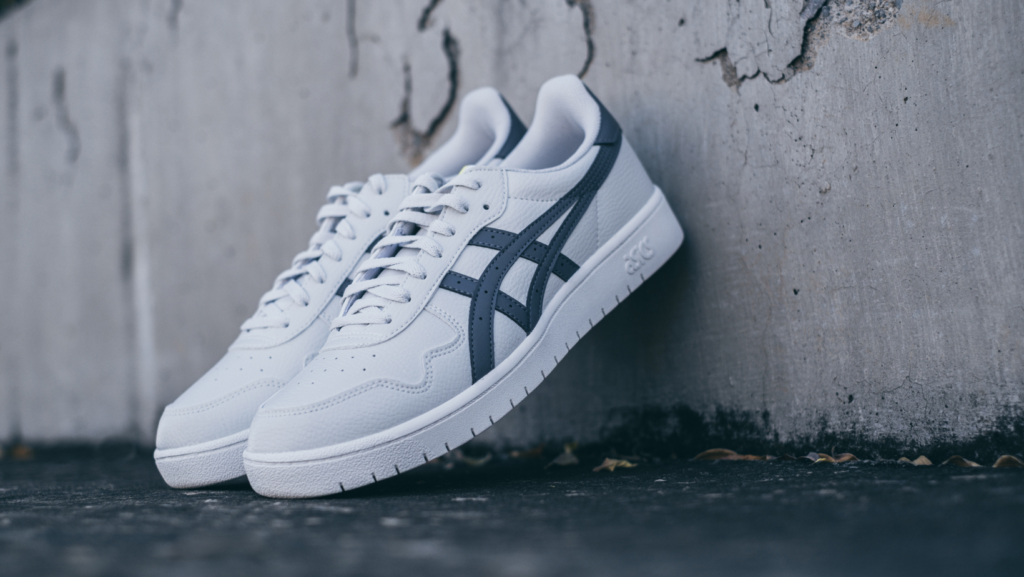Cushe Shoes, one of the most popular ventures of Wolverine Worldwide, shut down abruptly in 2015, with the parent company diverting its focus to other newborn brands.
The aesthetic footwear brand, although a hit in the market, failed to match Wolverine’s high ambitions.
But let’s rewind a little. For those who know little or nothing about Cushe footwear, you’ve missed out on a lot!
If comfort is your foot’s forte, you cannot get anything better than Cushe – the embodiment of the nice “cushy” feeling you get when you’re happy.
So, we can conclude that the brand got its name right.
Cushe was a subsidiary brand of Wolverine World Wide, one of the largest publically-traded manufacturers and distributors of footwear.
To understand the short, successful, and sad story of the brand, let’s have a look at its history first.
The Intertwined Tales of Cushe Shoes and Wolverine Worldwide
Have you ever heard of the phrase, ‘till death does us apart’? That romantic notion applied to Wolverine and its subsidiary brand, Cushe Shoes.
Of course, Wolverine continued and still exists today as a happy company. Perhaps the tale wasn’t as romantic as we thought!
It all started back in 2005 when Cushe launched its first line of products in the United Kingdom.
The footwear industry was thriving, and new players were trying to establish a position in the market.
Out of nowhere, this small brand jumped onto the bandwagon and gained a lot of popularity. Sure, it wasn’t a global name back then.
But the unique designs of Cushe shoes along with their comfort and usefulness made for a great product back then.
Soon enough, Cushe became a popular local name within the lanes and bylanes of towns and cities of the United Kingdom.

Who Created Cushe?
Every story has an originator, a protagonist. For Cushe Footwear, Martin Dean was the main character. He is a seasoned entrepreneur and designer.
Over his years of service, he also became an important asset for Wolverine Worldwide, both as an employee and a designer.
Before he started his venture, Dean also served as the lead orchestrator of several hit designs backed by brands like Merrell, CAT Footwear, Patagonia Footwear, and so on.
After amassing years of experience and resourcefulness, Dean decided it was finally time to launch his venture.
He started Cushe and took it from the ‘start-up’ stage to a well-established organization.
For four whole years, Dean worked hard to take his brainchild to a global level. It wasn’t his primary ambition to explore the international market.
But given the potential of his brand, everyone expected the venture to go overseas.
Unfortunately, he couldn’t do that alone. All he needed, though, was a little bit of help.
The Wolverine’s Timely Entry
At this time, another industry giant loomed over the global market.
Wolverine Worldwide was popular for acquiring small and fast-growing brands, with their most recent acquisition reflecting a valuation of over $410 million.
When they got a sniff of how Cushe is expanding its operations, they were eager to express their interest.
It was in 2009, a mere four years after the inaugural ceremony of the child brand, that Wolverine lodged an official offer to acquire Cushe Shoes.
The actual valuation of the deal is still a murky affair. But we can place it around the $20 million range, not that hefty a price per Wolverine’s standards.
After all, their most ambitious venture in the footwear industry involved a whopping $1.2 billion deal.
Anyway, it didn’t take long for Wolverine to convince Cushe. The subsidiary brand was happy to leverage Wolverine’s key positioning in the global market to expand its own business.
The deal went through successfully. But wait – what happened to Cushe’s previous owner?
Thankfully, Martin Dean wasn’t going anywhere. Out of respect for his illustrious career and expertise in the industry, he became the Creative Director of Cushe under Wolverine’s brand name.
The role suited him perfectly, and he did well over his remaining years of service.
In addition, Dean got some additional responsibilities. He became the leader of Wolverine’s newest project – the London Design Nest.
After the deal, Cushe Shoes became a part of the Hush Puppies Group, under the leadership of President Mark Neal.
YOU MAY ALSO LIKE: Built Bars Update
Why Did Martin Sell Cushe? What Happened After the Sale?
When you think of Wolverine’s acquisition of the brand, one important question rings prominent – is Cushe Shoes still in business?
We know that Cushe closed down officially in March 2016. So, was the deal bad for the brand; were they not making enough money? Let’s find out.
In 2009, Cushe was still a local brand. They were selling around 100,000 units per year at that time. But they were popular for their relaxed fits and innovative designs.
In the non-sports category, they were the most stylish while also offering sports-like features.
But scaling became an issue for the company’s then-president, Martin Dean. They were not able to take their products to international markets.
Moreover, there were some inconsistencies in logistics and operations that prevented them from targeting broader audiences.
This is why they needed help.
We already know who bought out Cushe Shoes in 2009. The Wolverine Worldwide Group became exactly what Martin Dean needed.
And so, without thinking further, he let his previous employers acquire his brand child. That, it appears, wasn’t a painful decision to make.
Dean recognized the need for making this drastic decision. The new ownership allowed Cushe to leverage the strong operational framework and business model of Wolverine.
The parent brand also had a vast infrastructure that promoted scalability.
Long story short, the move was bound to benefit all parties involved. Even Martin Dean got a “cushy” job as the Creative Director of his brand. What could go wrong?
RECOMMENDED: Shopko Departmental Chain Update
The Aftermath of the Deal
When you think of how the brand shut off in 2016, it’s difficult to imagine it ever being successful.
However, in 2009, right after Wolverine acquired it, Cushe became one of the trendiest footwear brands.
Remember how we mentioned that Cushe sold 100,000 units per year before Wolverine took over?
After the deal was successful, they started producing and selling over a million pairs every year, the figure recorded a mere two years after the acquisition.
In 2011 itself, the sale was up by a whopping 26%.
The deal was proving to be a masterstroke for everyone involved. Martin Dean, a veteran in the footwear industry, showed again why experience mattered so much.
His call was the right one to expand his brand on a global scale.
Another interesting fact – 18 months into the acquisition, Cushe began selling its products in 65 countries across the world.
In 2009, they were only serving the shrunken markets of around 5 different countries.
Looking at these figures, it appears that the deal was a successful one.
At least for the initial years. But what transpired in the latter stages; what happened that was so drastic that Wolverine shut down Cushe completely?
Find out in the next section.
Why Did Cushe Shoes Discontinue?
After Wolverine’s acquisition, Cushe grew in size and operations by at least tenfold. Yet, come 2016, the brand closed off its doors forever.
The reason? Wolverine’s unparalleled ambition.
Even in the last year of its operation, Cushe recorded annual sales of around $17 million. Not bad for a company that’s about to die out, right?
Unfortunately, Wolverine Worldwide stated that they look into their brands’ future potential, not just their present sales.
In that regard, Wolverine representatives decided that Cushe had reached its potential. Other brands are requiring firmer attention and greater allocation of resources.
Keeping that in mind, Cushe Shoes had to take a backseat.
Other brands like Merrell were going to get more attention from the company. Merrell, at one point, was losing $23 million a year. But by 2016, it was a $600 million industry leader.
Another small brand that Wolverine acquired back when it was small was Chaco. Under the leadership of Wolverine, Chaco was growing exponentially well by 2016.
Because of such fierce competition, Cushe lost its footing in the elite portfolio of its parent company.
But the original idea wasn’t to close all the operations entirely. However, after some consideration, the company thought it best to part ways with the smaller ventures.
In that move, several brands like Cushe and Patagonia came under the radar.
Eventually, they closed camp and made way for the more successful, contemporary brands.
Cushe’s untimely demise had nothing to do with a lack of customers or monetary losses. They were still making good money. Their only mistake? They couldn’t provide what Wolverine wanted.
Can I Still Purchase Cushe Shoes?
As we mentioned, Cushe Footwear gained a lot of accolades as a brand during its tenure as the industry leader.
When they disappeared from the market, several disappointed customers were in a frenzy, trying to look for their favorite shoes.
Wolverine addressed this issue to a point. They decided to complete all the pending orders of the brand before shutting operations entirely.
After the closure, all the leftover stock made its way to the other 14 subsidiary brands of the parent company for further distribution.
But after the circulation of those products, you couldn’t find any Cushe shoes in official stores of Wolverine-affiliated brands.
However, there are several online platforms like Amazon, eBay, REI Co-op, Poshmark, Walmart, and so on.
Shoes Similar to Cushe
If you’re not a fan of buying off second-hand markets, you can try and find some nice Cushe alternatives for yourself.
Here are the brands that cater to the same segment of customers, prioritizing style, ruggedness, comfort, and designs.
- TOMS: One of the most popular footwear brands, TOMS offers a complete solution to the industry. From slip-on to stylish shoes, you can virtually find a foot-related product for all your needs at their virtual and physical stores.
- Teva: Not the same brand, but Teva Shoes has some likeness to the once-popular Cushe brand. They have the same, ruggedly charming look and offer similar comfort patterns. If you’re into style and convenience at the same time, this is the perfect brand for you.
- Hotter Shoes: An alternative to the shortcomings of fast fashion, Hotter Shoes incorporate the conservative approach to making footwear while including all the modern-day definitions of aesthetic. They prioritize a good customer experience and are always willing to improve as per reviews and feedback.
Cushe Shoes – An Ode to the Early 2010s
Most millennials and Gen-Zs admit that decades are getting progressively less appealing. 2010s, for instance, was much better than how the 2020s are starting.
To start a long 10-year journey with the COVID-19 outbreak? No, thank you!
The association of the ‘good old days’ with the early 2010s is another factor that makes people misty-eyed over the untimely farewell of Cushe Shoes.
After all, the brand was at its peak in 2010, 2011, and 2012.
Customer reviews heaped compliments on the brand over the internet. Everyone talked about the stylish shoes that were ‘light as a feather’.
The blend of design and comfort made everyone swoon over the company’s products.
One customer reviewed Cushe as the “best non-sport footwear brand for making products fit for traveling on foot”. It is high praise, especially as it came on the customer’s personal blog.
Overall, Cushe had a tremendous journey over its 10-year reign in the industry, and it’s only fair that customers still remember the veteran brand fondly.














